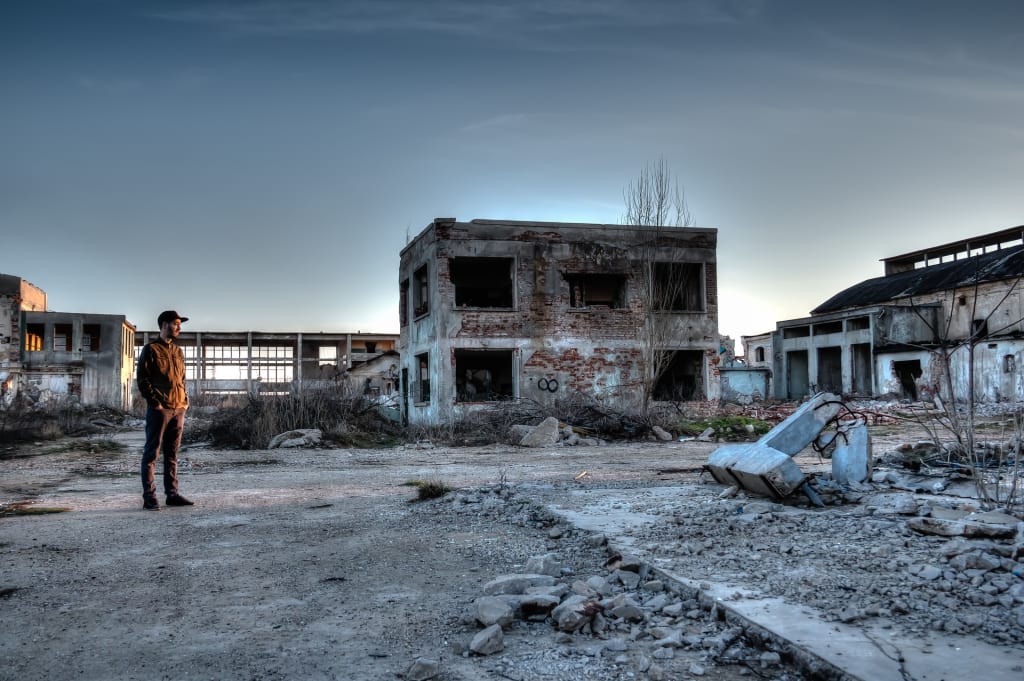Piero Paniccia, "Chernobylondon"
Chernobyl and its consequences

Piero Paniccia’s “Chernobylondon” does not stand out for its correct, linear, documentary style — albeit marred by a personal, non-syntactic or rhythmic use of punctuation — but rather for its content.
The story has as its protagonist an Italian family whose destiny is intertwined with that of another Belarusian family. At the center of everything, at the core of the story, it is appropriate to say, is the Chernobyl disaster.
“My mother, when she came to Italy for the first time and she met my father, had come as a chaperone for Belarusian children, who had suffered from radiation following the Chernobyl disaster. You know what Chernobyl is, right? Now you think: thanks to that disaster I was born. If so many people hadn’t suffered, I would never have been born, can you think about it?”
It is because of Chernobyl that Alessandro and Natasha meet in Italy, love each other and give birth to Yuri. Natasha is a carer for children contaminated by radiation, welcomed in Italy for a detox holiday. In Senigallia she meets Alessandro, with whom she falls in love and whom she marries, introducing him and all his family to the city of Minsk, opening the doors to a hitherto unknown world, that of Belarus.
The story is constructed in a deliberately unsettling way, with flashbacks, advances and returns to the past, forays into the memories of both families. The story covers a time span that goes from the day when the disaster was first heard of, in April 1986, to a future 2040 with political fiction scenarios. The blocks of content are essentially three: the Chernobyl disaster and its consequences on health, the swordsmanship of which Yuri and his cousin Mirco will become champions, and Belarus.
The shadow of radioactivity hovers over the entire story, from the title to the tragic conclusion. Yuri was born “because of” Chernobyl but it is not he who is contaminated but his cousin. Mirco will fall ill with leukemia and it will be Yuri, born from Chernobyl, who will save him by giving him his marrow. And yet, for a life that is saved, there will be one to be returned at the end of the novel, for the happiness received, someone will still have to pay.
The story unfolds around the atom, from the disaster to the studies of nuclear physics to which Yuri will devote himself as an adult, thanks to his love for Felicia. The use of cold fusion will lead, in 2040, to the replacement of all plants with new clean plants.
The second block consists of swordsmanship. This passion runs through the whole novel, from the first contacts of the two cousins with gyms and teachers, up to the medals won in the 2012 London Olympics which, we recall, had not yet taken place when the book was written. One senses Paniccia’s love for this sport, and his expertise, to the point that the book was presented as part of the celebrations for Valentina Vezzali, from Jesi as the author and Olympic gold medalist. In the final meeting, described minute by minute, point by point, green light by red light, between Yuri — who mocking fate has led to compete under the Belarusian flag — and his cousin Mirco, representing Italy, one can by contrast highlight the budding friendship of two nations.
And here we come to the third — and in our opinion the best — of the three core content: Belarus. No one, before Paniccia, had described life in that nation to us in such detail, with such great and affectionate participation. We discover woods of tall leafy trees and bushes of juicy berries, cars like the Lada Zighuli, food and perfumes, but also the surly and pachydermic bureaucracy, which can be circumvented with a well-packed basket of delicacies, corruption, the legacy of little democracy and the emptiness left of the former Soviet Union. We also discover black and unknown pages of European history, such as the Kathyn massacre, a controversial event, a horrible massacre for which Paniccia attributes total responsibility to the Nazis but which historians have revealed to have been the work of the Soviets.
The existential question, which will accompany the protagonist Yuri Mancini for the entire novel, is whether good can arise even from a disaster like Chernobyl, whether it is permissible to feel happy as a result of a misfortune, whether one should not reward one’s destiny who gave us joy out of evil.
“Damn Chernobyl,” our grandfather said when I was born, believing I had been hospitalized with radiation. He thought my mother had been contaminated. So my father and mother told me several times. In my case, however, Chernobyl had nothing to do with it. But today Chernobyl is taking a toll. It gave birth to me first. Because it’s useless to hide it: I was born thanks to Chernobyl and I won’t forget it. Now the accursed Chernobyl takes its revenge; it is taking from me the dearest things I’ve ever had.”
Around everything, enveloping and reassuring, ready to support and console the two cousins, there is the family, both Italian and Belarusian, made up of parents, grandparents and uncles, honest people, capable of eliciting a smile and wiping away a tear with a simple gesture full of love, like preparing a pan of lasagna, the same one that the author wants immortalized on his site.
In the end this novel with many souls not always amalgamated with each other takes leave of us with a metanarrative note.
“Maybe that’s right, an author cannot follow a story indefinitely. At one point, when he said what he felt like saying, he stops. Then the author can leave the story open or closed, it doesn’t matter. I think this could be a prerogative. No one forces it. It will then be his readers who will judge whether that story was the right end”.
About the Creator
Patrizia Poli
Patrizia Poli was born in Livorno in 1961. Writer of fiction and blogger, she published seven novels.






Comments
There are no comments for this story
Be the first to respond and start the conversation.